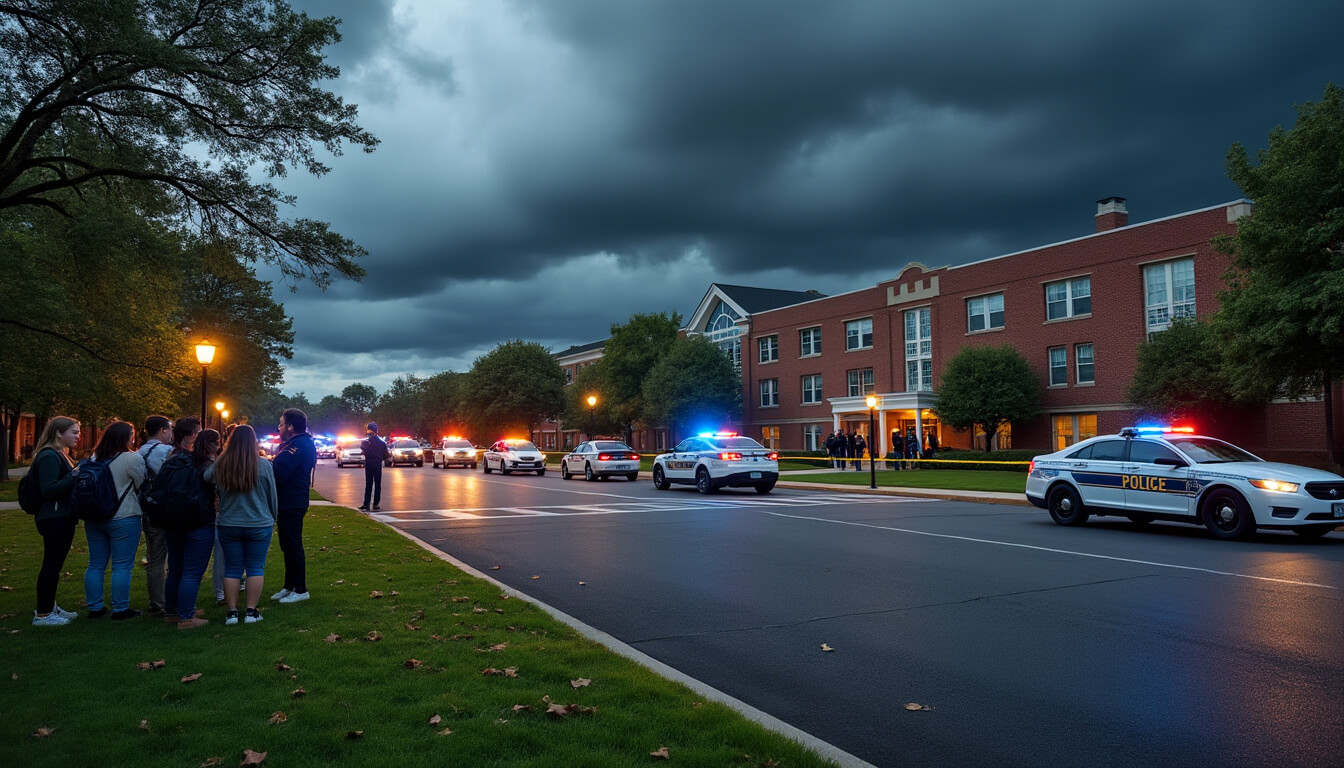The recent FBI raid on the residence of Xiaofeng Wang, a cybersecurity professor at Indiana University, has left the campus community in shock and uncertainty. This incident, which saw agents from the FBI and the Department of Homeland Security (DHS) search two properties linked to the professor, has triggered a state of alarm, particularly among Asian faculty and students. Speculation runs rampant as concerns about political motivations circulate following the professor’s abrupt dismissal on the same day as the raid.
Impact of the FBI Raid on the Campus Community
The FBI’s actions have drawn widespread attention, not just for their timing but for their implications. Faculty and students alike are grappling with the unknowns surrounding this investigation, which many fear is politically charged. The reaction has been swift, with various stakeholders voicing their concerns:
- Heightened anxiety among Asian students regarding possible racial profiling.
- A call for transparency from Indiana University’s administration regarding the dismissal of Professor Wang.
- A renewed scrutiny of funding sources for international collaborations in research.
Faculty Concerns Following the Professor’s Dismissal
Shortly after the raid, Xiaofeng Wang was fired via email from Indiana University, a decision that has been met with criticism from academic peers. The university’s actions raised questions about due process, especially in light of Wang’s reputation as a leading expert in cybersecurity. Faculty members and colleagues have voiced their dismay:
- Calls for the university to reinstate Wang pending the outcome of the investigation.
- Concerns that this incident may deter future research collaborations with international academics.
- Worries about the chilling effect on academic freedom and expression among faculty members.
Community Reactions and the Fear of Political Motivation
In Bloomington, the local Asian community is particularly shaken. Many individuals express fear that they too could become targets in similar investigations. Comments from students like a Chinese PhD candidate highlight a climate of apprehension:
“It’s scary to think that just studying here could lead to such scrutiny. We’re worried about our futures and the impact on our research opportunities.”
| Community Response | Impact on Students |
|---|---|
| Increased anxiety | Impact on academic performance |
| Calls for support networks | Reluctance to engage in research |
| Concerns about university policies | Potential leave from study abroad |
Faculty Voices Against the FBI Investigation
Academic leaders, including those from other institutions, have rallied in support of Professor Wang. Many underline the need for a careful reevaluation of the federal investigation protocols that impact students and professors alike. Their collective sentiment suggests a potential pushback against perceived overreach:
- Highlighting past instances of wrongful charges against academics.
- Stressing the importance of safeguarding academic integrity and international collaboration.
- Requesting a comprehensive review of investigation practices affecting faculty.
Implications of the FBI Raid for Chinese Academics
The FBI raid’s repercussions extend beyond immediate concerns, with broader implications for Chinese academics working in the United States. Many experts voice apprehensions about the potential for a reduced influx of international talent:
- Fear of diminished collaboration in research fields.
- Concerns over funding cuts for programs involving international students.
- Potential impacts on U.S.-China academic partnerships.
In light of recent events, it is essential to foster a supportive environment for international scholars to continue their valuable contributions to research and academia in the U.S.
FAQs About the FBI Raid and Its Impact
What was the reason for the FBI raid on the professor's residence?
The FBI raid was part of an investigation into alleged undisclosed funding from China related to a project that received federal grants.
The campus community, particularly among Asian students and faculty, has expressed shock and fear over potential political motivations behind the raid.
Professor Wang's dismissal raises concerns about due process and may set a troubling precedent for how universities handle allegations against faculty.
As of now, there are no criminal charges pending against Professor Wang.
This incident could deter international students from studying in the U.S., particularly those from China, due to fears of discrimination.
Students are encouraged to seek academic and emotional support through university counseling services and student advocacy groups.
Universities should implement clear policies that protect academic freedom and ensure due process in investigations.
The responses indicate a strong solidarity among academics against potential overreach in federal investigations affecting their community.
Federal investigations can have serious repercussions for academic independence and the ability to attract international talent.
The situation may lead to increased advocacy for policy changes at both the university and government levels.


